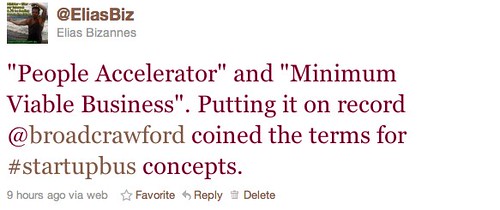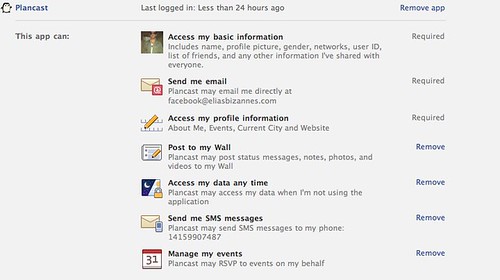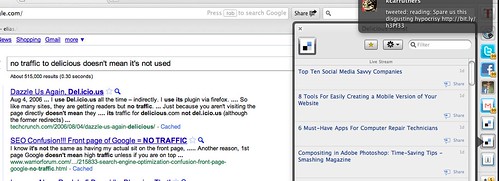It’s a private company so we may never know. But one thing that’s clear, is that the circumstances surrounding its growth are mimicking things we’ve seen in the last few years. The below are some specific thoughts on where I see Quora heading in 2011 and beyond.
1) Its growth will be driven by celebrities
A year ago, I asked if Twitter gave stock options to celebrities, which would explain the bizarre trend that had celebrities embrace the service. I’m willing to bet money they did.
Steve Case, the billionaire founder of AOL, recently has been actively answering questions on Quora, and it is awesome to see the responses. Now imagine if this domain knowledge in tech was expanded to people asking questions about celebrities? Let’s not forget Twitter started as a tech industry thing (I was told in May 2007, when I first started networking in the Sydney scene, that it was the ‘thing’ I had to have to have credibility) — it was a way to network in tech and track interesting people. Thinking back, it was transformative because successful people in tech were now accessible to new upstarts like me. In the years to follow, we saw Ashton Kutcher’s CNN race for one million followers combined with the Oprah moment, that suddenly saw it become mainstream, transformed into a way to track your favourite celebrities which is what drives its growth now.
So imagine if Quora gave stock options to all the interesting people of the world and they started answering questions? Imagine it being a direct way to interact with elected officials? Keep reading, this is not the first time we’ve seen this.
2)It will break news and information
Quora did something interesting a few months ago: it helped unravel some big news in the industry. It will do this again.
Its recognition in the mainstream (give it 2 years at least) will be if two things can occur: a massive tragedy occurs that uses Quora as a form of distributing reporting and citizen journalism; and the 2012 presidential candidates use it as a way to engage with voters. Who knows, maybe 2012 is too soon but like Twitter, it will be those two kinds of events that will make it mainstream. (For context on this, read my post from two years ago which explains the origins and rise of social media.) The service is perfectly setup to cater for both situations in a way that exceeds both the ability of Facebook and Twitter, its cousins in the social media world that is driving this broader trend in the world.
3) Google will try to buy them
Quora’s “social” competency complements Google’s lack in that area. Which ironically, is because both founders were early and senior employees of Facebook…the same reason I believe the Obama campaign led to him becoming the first social media president (as another early employee and “co-founder” of Facebook, Chris Hughes, was responsible for Obama’s Internet strategy).
Google is trying really hard to catchup on social, an area Facebook dominates and what will lead to Google losing its leadership in the industry. Despite all the rumours of its internal social networking initiatives, the numerous products launched so far have all been ordinary. And it’s for good reason: Google doesn’t get social. It can’t, it’s not in its DNA.
Google has an engineering culture where decisions are made based on data. Google’s former top designer quit because of “a design philosophy that lives or dies strictly by the sword of data”. Rather than trust the talent of its designers, it instead would over-rule decisions based on user metrics — which in a conversion business, makes sense. But the thing about user experience, its about shaping new behaviours rather than relying on existing patterns.
Which interestingly, is what Quora is excelling at: its user experience is inspiring the entire industry (like the Angel List crew, who in turn are inspiring an entire industry). That’s an impressive thing to do as a startup, and shows innovation in an area that is key to engagement — engagement that Google can’t seem to get.
4) They will decline a Google acquisition and do a licensing deal instead
Quora has very rich content, the stuff that make Google searches a lot more interesting. Google validated it is interested in the social search area with the $50 million acquisition of Aardvark. Quora in my eyes, would be a perfect fit for the same goal Google has but due to a different approach.
Google makes its money on specific types of searches, which are transactional searches — when you are looking to buy something (say a flight) as opposed to informational (like what’s the capital of Australia). But it’s always been the informational searches that drive usage of the Google search engine, as Google is a one-stop-shop for answers. Quora is like the structured blogging equivalent of Wikipedia, which is gold in the eyes of Google.
Which is why I believe they will go down the path of Twitter, which successfully played off both Google and Bing (Microsoft) with a licensing agreement to show Tweets in searches, a functionality that allowed the search engines to claim they were now “real time”. They will want to do this with Quora, because the questions on Quora mimic searches people make and the answers offer a treasure trove of curated answered by real people.
Conclusion
I could be wrong. Regardless, even if it doesn’t succeed like how I think it will, expect the startup to make a lot more noise in 2011 beyond the current cries of people saying this last week has seen a tipping point. The big blogs will continue to talk about it, and new journalists are now discovering it, only to compound my original complaint of lazy journalism.
That’s impressive and which will guarantee the noise through to 2011. That’s because all communication innovations tend to do so, and Quora is the new kid on the block that will drive that disruption.





